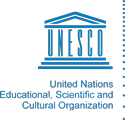2019. 10 p.
Periodical title:
The Lancet, Child and Adolescent Health, 3 (4)
Description:
Background: Low-income and middle-income countries (LMICs) face major challenges in achieving the UN's Sustainable Development Goals (SDGs) for vulnerable adolescents. We aimed to test the UN Development Programme's proposed approach of development accelerators—provisions that lead to progress across multiple SDGs—and synergies between accelerators on achieving SDG-aligned targets in a highly vulnerable group of adolescents in South Africa. Methods: We did standardised interviews and extracted longitudinal data from clinical records at baseline (2014–15) and 18-month follow-up (2016–17) for adolescents aged 10–19 years living with HIV in the Eastern Cape province of South Africa. We used standardised tools to measure 11 SDG-aligned targets—antiretroviral therapy adherence, good mental health, no substance use, HIV care retention, school enrolment, school progression, no sexual abuse, no high-risk sex, no violence perpetration, no community violence, and no emotional or physical abuse. We also assessed receipt at both baseline and follow-up of six hypothesised development accelerators—government cash transfers to households, safe schools (ie, without teacher or student violence), free schools, parenting support, free school meals, and support groups. Associations of all provisions with SDG-aligned targets were assessed jointly in a multivariate path model, controlling for baseline outcomes and sociodemographic and HIV-related covariates, and adjusted for multiple outcome testing. Cumulative effects were tested by marginal effects modelling.
Themes:
Regions:
Resource types:
Keywords:
Languages:
Record created by:
IIEP


